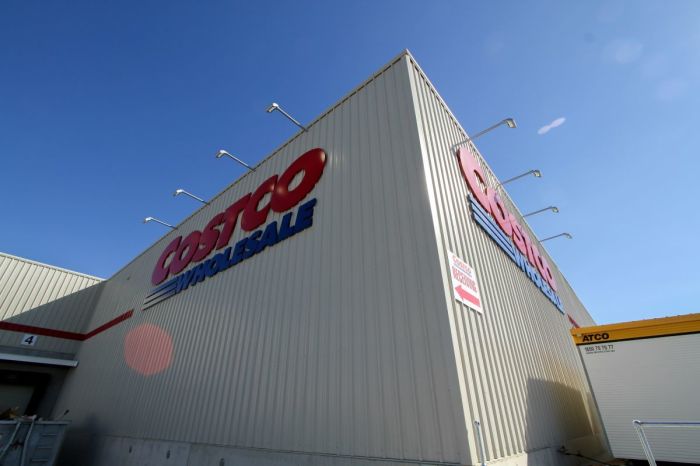Christian investors ask Costco, Walmart, major retailers not to sell abortion pill

Hundreds of Christian investors have signed onto letters sent to several of the largest retailers in the United States, urging them not to sell the chemical abortion drug mifepristone after the federal government loosened standards to allow the drug to be sold at retail pharmacies nationwide.
More than 400 Christian investors and activists are backing letters to the leaders of Costco, Walmart, Kroger, McKesson and Albertsons Friday urging them to continue their current practice of not dispensing mifepristone.
Mifepristone is a synthetic steroid endocrine disruptor that destroys the environment in the uterus and starves an unborn baby to death. It is the first drug in the chemical abortion pill regimen. In January 2023, the FDA modified restrictions to allow pharmacies to dispense mifepristone, which could only be dispensed by certified doctors for decades.
While at least three dozen people signed their names to each of the letters, over 400 investors in each of the companies and more than 6,000 Costco members signed on anonymously.
The signatories own a combined $56 million in Costco stock, $88 million in Walmart stock, $23 million in McKesson stock, $4.3 million in Kroger stock, and $1.14 million in Albertsons stock. Led by Inspire Investing CEO Robert Netzly, several additional professionals, including American Family Association Vice President Walter Wildmon and Guidestone Financial Resources Managing Director Will Lofland, signed on to the letters.
"The New York City Comptroller recently urged you to 'immediately take the necessary steps' to begin dispensing mifepristone and warned that failing to do so 'raises significant investor concerns,' including 'the company's responsiveness to a growing market opportunity, its mitigation of reputational risks, and its commitment to maximizing sales and long-term shareholder value,'" the letters explained. The signatories pushed back on this analysis, describing it as "not true."
The letters warned the companies "the 'growing market opportunity' of abortion drugs is legally and politically fraught, raises significant reputational issues, and reduces the company's customer base, both literally and because it would drive away many existing customers." They also suggested that the businesses could face legal consequences for selling the abortion pill in states that have near-total bans on abortion.
"Last year, 20 attorneys general wrote letters advising pharmacies that receiving and dispensing the drug by mail is expressly prohibited by the Comstock Act and many state laws," the letters added. "Violating the Comstock Act alone carries a prison sentence of up to ten years."
The letters outlined the side effects of the abortion pill, saying it has led to "32 deaths, 4,218 adverse events, 1,049 hospitalizations, 604 blood loss incidents requiring transfusions, 418 infections, and 75 severe infections from the drug from 2000 to 2022."
"Mifepristone terminates life and does so in ways that the FDA acknowledges risk serious harm to the mother," the letters concluded, adding that dispensing the drug is unnecessary to their businesses and brings "legal and political risk."
Several pharmacy chains have already begun selling mifepristone.
Earlier this year, CVS and Walgreens announced they would begin offering the drug in select states.
The letters to the five major retailers respond to communications sent to the companies by New York City's Democrat Comptroller Brad Lander two weeks earlier.
Lander indicated that he was writing on behalf of New York City's pension systems, which own stocks exceeding a combined $1.32 billion in all five companies.
"By failing to become certified mifepristone dispensers, these pharmacy giants put both women's reproductive health care and investors money at risk," Lander said in a statement after writing the letters. "The boards of Costco, Walmart, Kroger, Albertsons, and McKesson should follow CVS and Walgreens and immediately take the necessary steps to receive certification to dispense the medication mifepristone in states where it is legal."
Lander insisted, "Making mifepristone available benefits customers and employees, increases sales, and generates long-term shareholder value."
Nearly five dozen Democratic members of the U.S. House of Representatives called on the five companies to begin dispensing mifepristone in a letter published at the beginning of July.
The legality of mifepristone has faced legal challenges.
In June, the U.S. Supreme Court unanimously rejected a challenge to FDA's 2000 approval of mifepristone, allowing pharmacies to continue dispensing mifepristone.
As the Christian investors noted in their letters, "The Court decided the case on procedural grounds and left unresolved whether the current system of dispensing and distributing the drug is legal."
Ryan Foley is a reporter for The Christian Post. He can be reached at: [email protected]




























